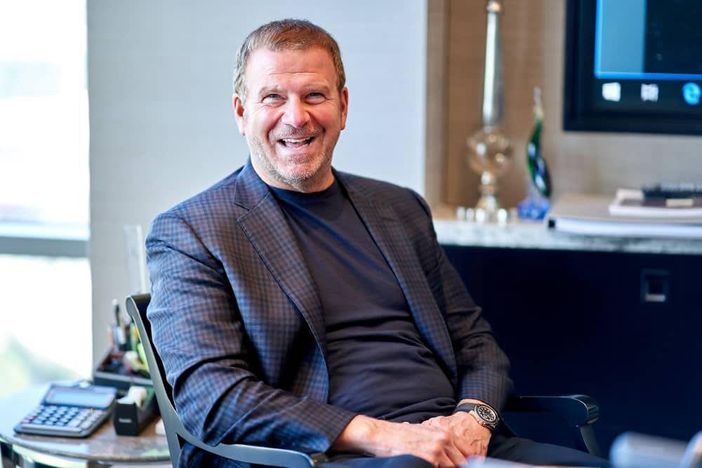Houston innovator discusses the power of a pivot and the future of the Space City
houston innovators podcast episode 208
It might surprise many to learn that publicly traded, NASA-backed Intuitive Machines, which has emerged as a commercial leader within lunar access technology development, had several pivots before finding its niche within space innovation.
In fact, as Co-Founder and CTO Tim Crain explains on this week's episode of the Houston Innovators Podcast, the company was founded as a space-focused think tank. Crain, along with his co-founders CEO Steve Altemus and Chairman Kamal Ghaffarian, came together in 2013 to start Intuitive Machines, which recently moved into a $40 million headquarters in the Houston Spaceport.
"At the time, our thought was, 'let's take the best of human space flight engineering processes, disciplines, and know how, and look at how we might commercially deploy that for biomedical, energy, big data, and aerospace,'" Crain says on the show. "We wanted to look at how we use great engineering for some of the hard problems outside of NASA's aerospace sphere."
Crain describes the early years of IM as important to the company because the founders learned how to run a business and meet customers' needs and expectations — things he had little experience from his previous roles as a civil servant at NASA. But Crain says they never fell in love with any of the early technologies and ideas they developed — from long-range drones to precision drilling technologies.
Then, everyone's eyes were on returning to the moon. With this new vision, NASA created the Commercial Lunar Payload Services Program. As Crain explains, this evolution involved looking to hire companies to deliver scientific and developmental payloads to the moon. IM won three of the NASA contracts so far, representing three missions for NASA.
"We dipped our toe in the 'let's develop the moon' river and promptly got pulled all the way in," Crain says. "We left our think tank, broad, multi-sector efforts behind, and really pivoted at that point to focus entirely on NASA's CLPS needs. ... The timing really could not have been any better."
Later this month, Crain will discuss IM's journey in detail for a NASA Tech Talk at the Ion. If you're interested in learning more after listening to the podcast, click here to sign up for the free October 26 event.
With Crain's decades in the space industry, he's observed a resurgence lately, and that has directly impacted Houston's role in the industry.
"The future of Space City is really just beginning to move into a time of producing the hardware here and having Houstonians make the spacecraft, space systems, and the technologies that we use to explore and develop the solar system," Crain says on the show.
- Space tech startup opens new $40M HQ at Houston Spaceport ›
- Houston space tech company announces $20M equity investment ›
- Houston space tech joint venture snags contract with NASA valued up to $719M ›
- Houston space tech company secures $2.4M to collaborate on moon exploration innovation ›
- Intuitive Machines sets mission launch, scores Air Force deal - InnovationMap ›
- Houston-based lunar mission's rocky landing and what it means for America's return to the moon - InnovationMap ›


 Apple doubles down on Houston with new production facility, training center Photo courtesy Apple.
Apple doubles down on Houston with new production facility, training center Photo courtesy Apple.